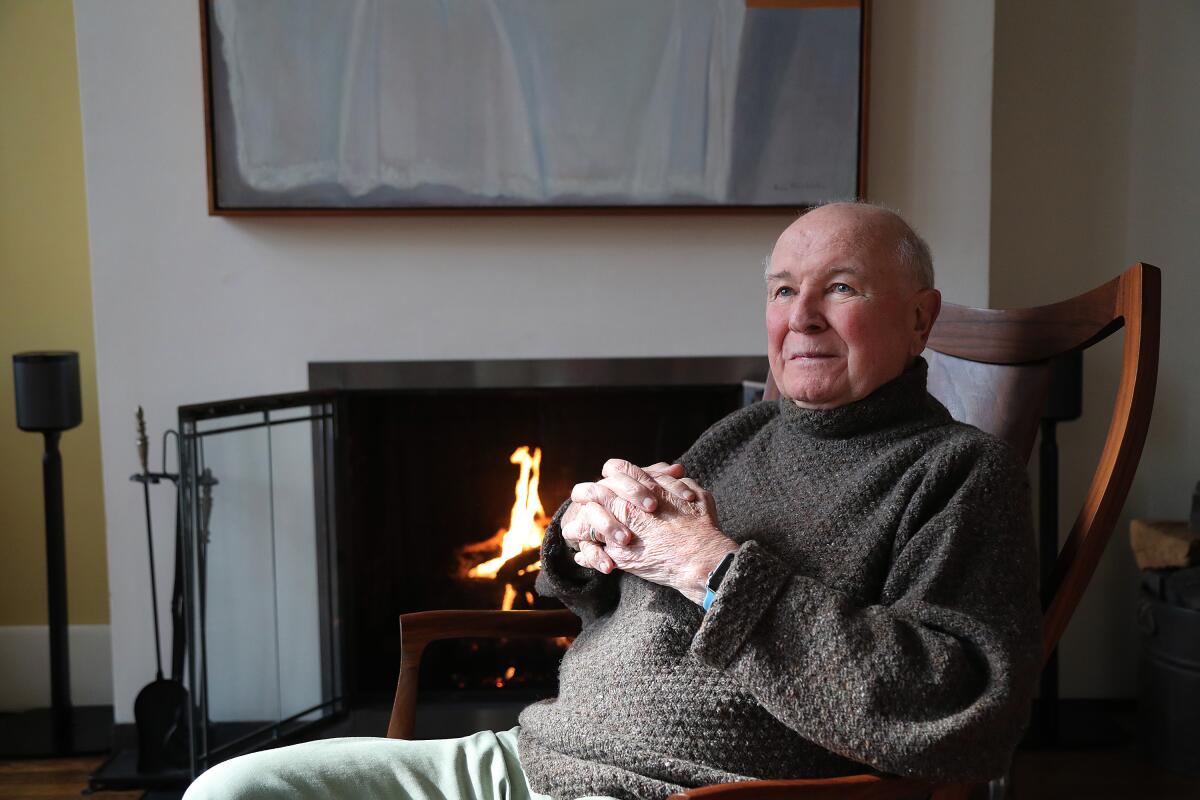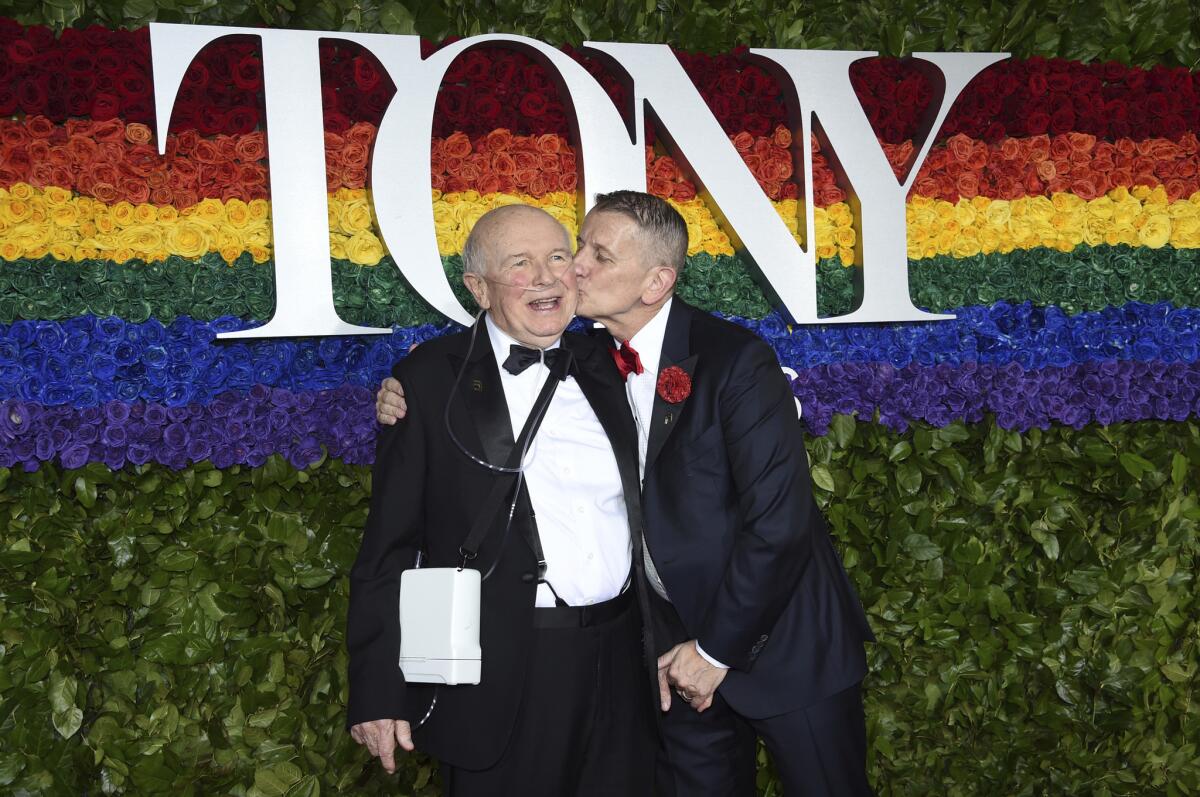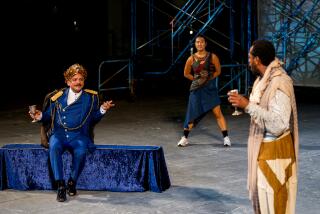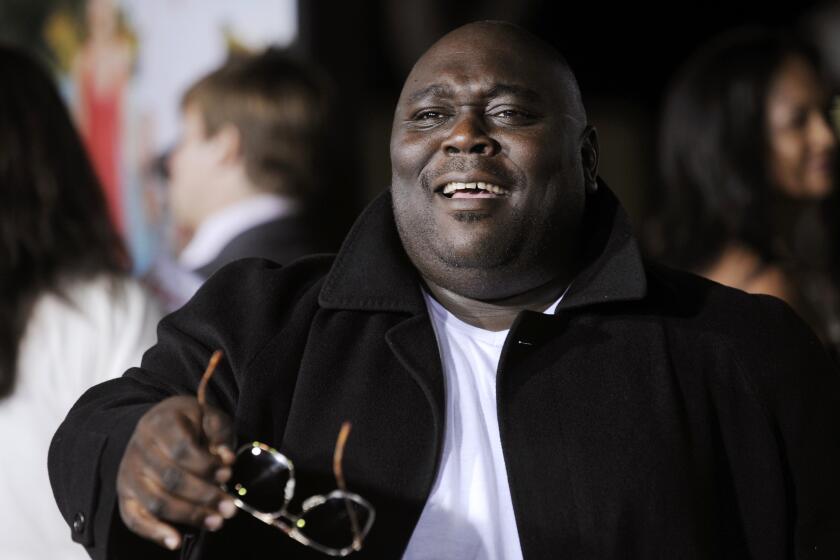Appreciation: How Terrence McNally used laughter to lift us past loneliness and loss

- Share via
Timing is everything in the theater, and Terrence McNally, a Broadway maestro who exuded eternal gratitude for the life the stage had given him, knew the importance of making a meaningful exit.
Having survived the AIDS epidemic and lung cancer, he died of complications from coronavirus on Tuesday at age 81. As the nation and the world are left reeling from the new pandemic, McNally, whose plays and musicals preached a gospel of living more fully through an awareness of loss, urges us through his death to take this disease seriously and to care for ourselves and one another — just as he instructed us to do in an earlier plague when he was a playwright at the top of his game.
McNally had been in faltering health for some time. When he accepted an honorary Tony Award last June, he opened his acceptance speech with a characteristic joke: “Lifetime achievement — not a moment too soon.” Suffering from chronic obstructive pulmonary disease, he needed to carry oxygen to say thank you to the art form that “changes hearts, that secret place where we all truly live.”
Perhaps the most important comic voice in theater since Neil Simon, McNally wrote to amuse and awaken. Laughter for him was the greatest survival tool ever invented. Humor was his shield against the homophobia he experienced as a Catholic boy growing up in Texas, against the losses that rained down on him and his community during the worst days of the AIDS crisis and against the slings and arrows of outrageous fortune — which in showbiz is even more outrageous than usual.
Terrence McNally, whose varied and prolific career as a playwright, musical librettist and screenwriter earned him five Tony Awards and an Emmy, died Tuesday.
But comedy was also a bridge, a way of connecting people who mistakenly assumed they had nothing in common. In plays such as “Frankie and Johnny in the Clair de Lune,” “The Lisbon Traviata,” “Love! Valour! Compassion!” and “Master Class,” he reprieves characters from their alienation through the grace of his always generous punch lines.
A leading gay playwright who embraced his communal role yet adamantly resisted ghettoization, he taught compassion and acceptance by reminding audiences that gays and straights want the same things — to love and to be loved, to find purpose (if not meaning) in the swirling mystery and to be forgiven while learning (grudgingly) to forgive. Death and loneliness are great equalizers — and the sources of McNally’s richest comic writing.
While still a student at Columbia University, McNally met playwright Edward Albee and a tempestuous romantic relationship began. McNally’s early plays, which bear some of Albee’s influence, are more experimental than his mature work. When “And Things That Go Bump in the Night,” an absurdist comedy with an irreverent attitude toward homosexuality, bombed on Broadway in 1965, McNally reconsidered his path.
He was drawn to farce and committed to writing openly as a gay man — as “The Ritz,” a dizzying 1975 frolic set in a gay bathhouse, attests. But McNally hit his stride when he turned his attention to the human comedy and, in particular, to the struggle for intimacy that especially afflicts those who have been taught by society to hate themselves.
His experience as a gay man was of paramount importance, but McNally knew that gays didn’t hold a monopoly on these difficult feelings. “Frankie and Johnny in the Clair de Lune,” about a short order cook and a waitress reaching tentatively across an emotional divide after a night in the sack, spoke to everyone who has felt disqualified for whatever reason from the game of love.
AIDS raised the stakes of this subject matter for McNally, who lost a longtime partner, Gary Bonasorte, to the disease in 2000. (In 2010, McNally married Broadway producer and attorney Tom Kirdahy, who survives him.) Sometimes the message about love and loss in a time of rampant death was implicit, as in “The Lisbon Traviata,” his fiendishly funny play in which gay opera fanatics seek refuge from the pain of romantic loss through rare Maria Callas recordings.
But increasingly the topic became explicit, nowhere more luminously than in McNally’s Tony-winning “Love! Valour! Compassion!” The comedy, about a group of gay men gathered at a country house who commit to being family as death circles, gives expression to the longings for companionship, romantic and otherwise, that mortality intensifies rather than negates.

Much as McNally was beloved by his collaborators, his great professional relationship was with theatergoers. He knew them as well as they had come to know him, and in plays and musicals he nourished their souls the way music had always fed his.
Few contemporary playwrights of his stature have had such success as librettists, but musical writing came as naturally to McNally as comedy. He won Tony Awards for his books for the musicals “Kiss of the Spider Woman” and “Ragtime” and received nominations for his work on “The Full Monty” and “The Visit.”
“When music isn’t playing while I’m working, I am often remembering music that touches me,” he wrote in his preface to “Love! Valour! Compassion!” And indeed all of his work approaches the condition of singing. His characters launch into arias with or without an orchestra — laughter being as excellent an accompaniment as a band, as Nathan Lane and Zoe Caldwell, quintessential McNally interpreters, have demonstrated with éclat.
‘He gave us a road map for how to be a survivor and how to honor those we lost,’ writes playwright Matthew Lopez of Terrence McNally, who died Tuesday.
Caldwell won a Tony for playing Callas in “Master Class,” McNally’s Tony-winning drama about the opera legend ferociously passing along secrets of the trade to a student, played by a young Audra McDonald, who would earn a Tony for her performance and repeat the feat with McNally in “Ragtime.”
Sentimentality is a weakness for McNally, whose writing can get slack when overindulged. To judge by the mixed reviews of some recent revivals, his work may be slightly out of fashion. (“Ragtime,” luminously produced last year at Pasadena Playhouse, provides a glowing counterexample to this trend.)
But McNally’s presence in the repertoire will endure for the radiant humanity, life-giving laughter and irrepressible love of this least lonely of art forms — the theater.
More to Read
The biggest entertainment stories
Get our big stories about Hollywood, film, television, music, arts, culture and more right in your inbox as soon as they publish.
You may occasionally receive promotional content from the Los Angeles Times.











